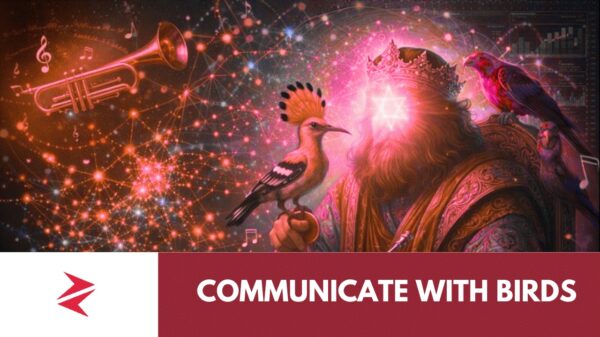From an Islamic standpoint, atheism is not merely a philosophical stance but is seen as a direct rejection of the existence of God (Allah) and the divine truth, which is considered a grave sin. In Islam, belief in Allah is foundational (Tawhid), and rejecting this belief (kufr) is condemned in both the Quran and Hadith. The concept of faith in Islam is built upon both reason and revelation, with Islamic theology asserting that the existence of God is evident in the natural world, the complexity of creation, and the moral order of the universe.
- Aqidah (Belief): Islam stresses the importance of belief in the unseen, where faith is seen as the ultimate acceptance of God’s promises and divine wisdom. This is epitomized in St. Paul’s famous definition in Christianity, but similarly resonates in Islam: faith is “the substance of things hoped for, the evidence of things not seen.” In this sense, faith in Islam is not blind, but is based on signs (Ayat) that point to the existence and attributes of God. The Quran frequently challenges people to reflect upon the natural world and use reason as a means to arrive at the truth of God’s existence.
- Reason and Logic in Islam: Islamic civilization historically embraced reason and logic, particularly during the Golden Age when scholars made significant advancements in science, mathematics, astronomy, medicine, and philosophy. Many Muslim scholars, such as Al-Ghazali, Ibn Sina, and Al-Farabi, engaged deeply with questions of reason, philosophy, and science, often using these as tools to better understand divine truths. This intellectual tradition challenges the assumption that Islam is inherently opposed to reason. In fact, it was during the Islamic Golden Age that Europe, trapped in its own Dark Ages, looked to the Muslim world as the center of science and knowledge.
- The Role of Faith: While Islam promotes the use of reason, it also emphasizes that human knowledge has limits. Some aspects of the divine are beyond human comprehension, and this is where faith comes in. Faith, in this context, is seen as a rational submission to the will of God based on the understanding that humans, with their limited perspective, cannot grasp the entirety of divine wisdom.
2. Atheism in Pakistan: Causes and Growth
The rise of atheism in Pakistan is often attributed to a variety of social, cultural, and intellectual factors. The narrative around the rapid growth of atheism, however, should be carefully examined as it might be more about visibility in certain circles rather than a demographic shift. Several factors contribute to the increasing discussions around atheism:
- Disillusionment with Religious Leaders: One of the driving forces behind atheism in Pakistan is the disillusionment many feel towards religious clerics, or mullahs. Hypocrisy, corruption, and moral contradictions in the behavior of religious leaders have led some individuals to question not only the authority of the clergy but the very foundations of the religion they represent. When religious leaders preach one thing but practice another, it creates a cognitive dissonance that leads to disillusionment and, for some, a rejection of faith altogether.
- The Role of Social Media: Social media platforms have provided a safe space for individuals to express dissenting views, including atheism. In a society where expressing atheistic views publicly can lead to social ostracism or even legal repercussions due to blasphemy laws, online communities have become vital for atheists to connect, share experiences, and foster discussions. This has contributed to the perception that atheism is growing rapidly, although it may represent a vocal minority rather than a sweeping cultural shift.
- Science and Logic: Atheism is often associated with a strong reliance on empirical evidence, scientific reasoning, and logic. In Pakistan, as access to education and scientific knowledge increases, some individuals find themselves questioning traditional beliefs. However, this does not necessarily lead to atheism for most. Many Muslims reconcile science with their faith, viewing the discoveries of science as further proof of God’s creation. Islam, far from being inherently anti-science, has a long history of scientific inquiry, particularly during the Golden Age of Islam.
- Education and Rationalism: There is a growing interest in scientific and critical thinking, particularly among younger generations. This has led to an increase in skepticism towards traditional religious narratives. However, this skepticism does not always translate into atheism; it may instead lead to a more reformist or liberal interpretation of Islam. For many, the conflict is not between Islam and science but between science and the rigid interpretations of religious dogma enforced by the clergy.
3. Cultural and Social Realities in Pakistan
The legal and social framework in Pakistan, heavily influenced by Islamic norms, makes the open practice and expression of atheism extremely challenging. Pakistan’s blasphemy laws, which are often used to protect Islamic sentiments, can be invoked against anyone perceived to be criticizing Islam, including atheists. This has created an environment where atheism is often discussed in secret or anonymously online. The fear of legal and social repercussions has a silencing effect on many who might otherwise openly identify as atheists.
- Blasphemy Laws: Pakistan’s blasphemy laws make it legally risky to express atheistic views, especially in public. These laws have been used to persecute individuals accused of blasphemy, sometimes resulting in violence or imprisonment. The severity of these laws acts as a powerful deterrent against openly embracing atheism, even as online communities of atheists grow.
- Cultural Backlash: The narrative of atheism’s rise is sometimes framed as a cultural threat, leading to increased societal pressure to conform to religious norms. Even within families, deviating from Islamic belief is met with intense resistance, often leading to personal and familial conflict.
4. Atheism vs. Islam: Philosophical and Ethical Debates
The philosophical debate between atheism and Islam often centers around questions of morality, the nature of existence, and the necessity of faith.
- Kant’s Categorical Imperative: Some atheists argue that belief in God is unnecessary for the functioning of a decent and humane society. Philosophers like Immanuel Kant articulated an ethical framework based on reason alone, arguing that moral behavior can be guided by universal principles rather than divine commands. Kant’s formulation of the Categorical Imperative — “Act only according to that maxim whereby you can at the same time will that it should become a universal law” — presents a moral philosophy entirely outside the bounds of religious dogma. For many atheists, this provides a rational basis for ethical behavior without the need for belief in a higher power.
- Faith and Logic: Islam counters that faith and logic are not mutually exclusive. The moral and ethical framework provided by Islam, deeply rooted in the belief in a just and merciful God, offers a system of values that promote justice, charity, and the welfare of society. While atheists might argue that morality can be constructed without religion, Islam posits that divine guidance is necessary for the ultimate understanding of justice and morality.
5. What is meant by the laws of nature and nature’s god and how are these related to our peoplehood?
The debate between atheism and Islam in Pakistan reflects broader global trends where questions of faith, reason, and modernity are increasingly contested. While atheism is gaining visibility in certain segments of society, the deep cultural and religious roots of Islam make widespread acceptance of atheism unlikely in the short term. The tension between disillusionment with religious authorities and the traditional values that shape Pakistani society highlights the complexities of this discourse.












































